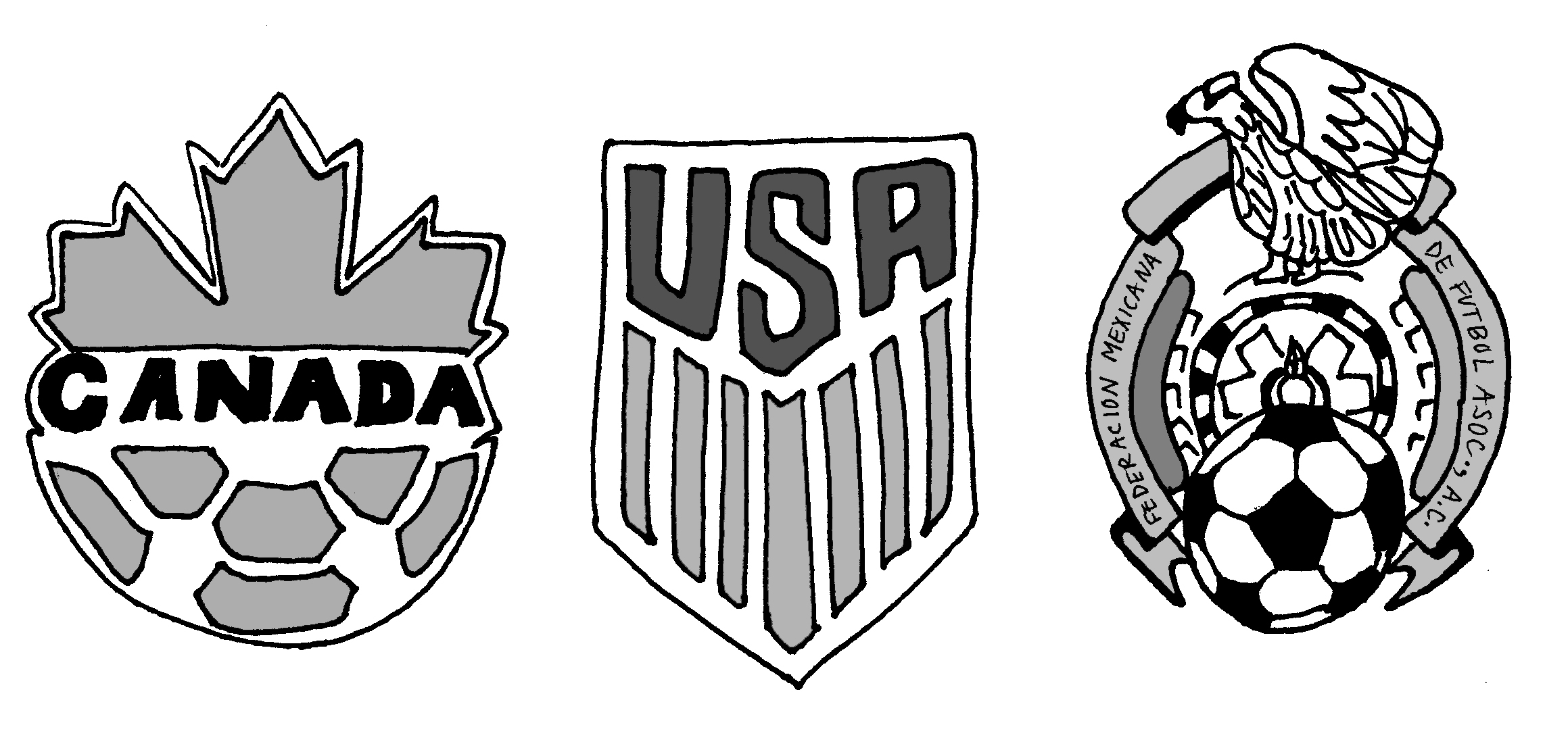With new North American bid, World Cup 2026 may be U.S. bound
April 21, 2017
 This
piece represents the opinion of the author
.
This
piece represents the opinion of the author
.

Last Monday, the United States Soccer Federation gathered reporters on the top floor of One World Trade for a pseudo-mysterious press conference. The media had already leaked the news, but when U.S. legend Alexi Lalas took the stage to introduce federation President Sunil Gulati, along with the presidents of the Mexican and Canadian federations, one of the worst-kept secrets in sports was made official. The three nations announced their intention to formally file a joint bid for the 2026 World Cup.
The U.S. has been sniffing around the possibility of hosting for at least a decade now after last hosting an incredibly successful tournament in 1994. U.S. Soccer was very interested in both the 2018 and 2022 World Cups and submitted an official bid for the 2022 tournament. Despite losing out to Qatar under somewhat dubious circumstances and numerous reports of bribery by the Qatari delegation in the bidding, the U.S. remains the backup plan by all accounts if the logistics of the Qatari bid fell apart.
Despite the rhetoric of the bid as a North American tournament, this is a U.S. bid. With the expanded field of 48 teams, the tournament will comprise of 80 total games. Of those, the U.S. will host 60, with 10 each in Canada and Mexico. Of those, the U.S. also gets all games from the quarterfinals onward. The 10 games apiece to the other nations seem like a consolation prize thrown as a sign of regional unity and support, as the U.S., perhaps more than any nation in the world, is best equipped with the capacity to host an 80 game tournament. Indeed, the President of the Mexican federation, Decio de Maria, seemed to think as much, conceding that it’s lucky Mexico was involved at all. After the announcement, he said, “the United States doesn’t need us to host a World Cup. That is the message. On day one, we didn’t have a single game. Today [we have] ten.”
In a way, de Maria isn’t wrong. Like the States, Mexico has been very interested in hosting in recent years, buoyed by their success as hosts in 1970 and 1986. Yet, a sole Mexican bid would have undoubtedly been defeated by a strong U.S. bid. The U.S. already has much of the necessary infrastructure and, crucially, a ton of political capital within FIFA after falling just short for 2022 and thanks to President Gulati’s machinations to help get FIFA president Gianni Infantino elected last year. A sole Mexican bid would have been doomed from the start; de Maria knew this and had little bargaining power at the table. So, while the bid is “a slap in the face to many Mexican [fans]”, as football columnist Duncan Tucker wrote, the calculus for the Mexican federation seems that it’s better to take the few games the U.S. offered than be left out entirely.
The bid pushes for a decision to be made by this time next year. If accepted, it’ll be the first World Cup hosted across three nations; it should be expected that multinational or regional bids will be the new normal. With the expansion to a 48-team-field, it’s difficult to find single countries that can handle a tournament of that scale. While that raises possibilities for unique coalitions like the rumored Spain-Portugal-Morocco bid to rival the North American one in 2026, it also jeopardizes the uniqueness of the tournament. One of the fun parts of past World Cups was how each took on some of the character of the host nations—1990’s Cup is remembered as Italia ’90, one of the lasting images of 2014 is the masses on the beaches in Rio, and so on. With the Cup spread across three (or more) nations, the national flavor and influence on the tournament is jeopardized, to the detriment of the spectacle as a whole.
The U.S.-led North American bid is rightfully the prohibitive favorite to land the 2026 World Cup, especially after securing the Oceania Confederation’s backing earlier this week. Because FIFA’s rotation of the tournament rules out Europe and Asia from hosting in 2026, that leaves just South America and Africa as potential suitors. Given the attractiveness of the joint U.S.-Canada-Mexico effort, in terms of infrastructure, political clout and rotation—CONCACAF hasn’t hosted since U.S. 1994—it’s hard to see another bid rivaling theirs. Whether this means a regionally-hosted World Cup becoming the new normal, and what that means for the character of the event remains to be seen.

Comments
Before submitting a comment, please review our comment policy. Some key points from the policy: